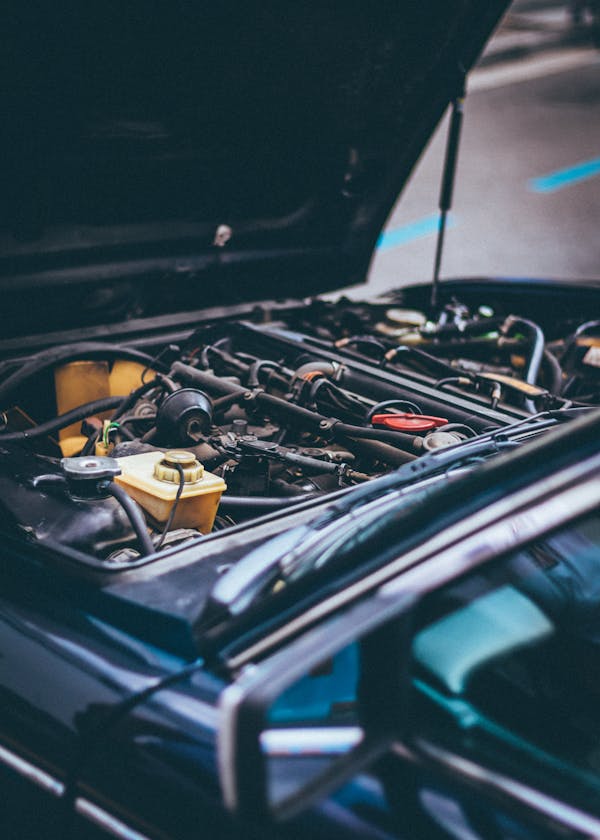Car batteries power most of the electrical components in your vehicle. A quality battery can keep these electrical components running even after the engine is turned off.
Inside the battery are cells with lead dioxide and lead plates that are submerged in sulfuric acid. These plates create ions that, through a series of chemical reactions, create electricity to start the engine and run electric accessories. Check out more at Automotive Batteries.
High-Quality Batteries
Batteries are a vital component of motor vehicles, so you want to use one with a long lifespan. High-quality batteries can last longer, which helps you save money on replacements in the long run.
In addition, high-quality batteries feature improved materials and advanced technology that are less susceptible to wear and tear. These batteries are also designed to resist vibration and corrosion.

Vehicles with top-notch batteries are more attractive to buyers, since they signal reliability. They can help you get the best resale value for your car. Additionally, using a battery with a long lifespan reduces maintenance requirements and improves your fuel efficiency. It also prevents significant power surges that could damage your vehicle’s electronic systems. In turn, this improves your engine performance and provides a smoother ride.
Longer Lifespan
It can take a while for an automotive battery to reach the end of its lifespan. It can vary based on several criteria, including usage patterns and the climate in which it’s operated.
Standard lead-acid batteries (also called flooded, conventional or SLI) can last up to three years. They require frequent recharging to maintain their charge and performance.
Absorbent Glass Mat (AGM) batteries use acid bound in a fiberglass mat to improve cycle stability and support start-stop vehicle systems. They are also shock and vibration-resistant.
Lithium-ion batteries are a newer technology that’s used in hybrid and electric vehicles. They are lightweight and have a longer lifespan than traditional lead-acid batteries. They can also recharge quickly. Try to go for a drive on at least a weekly basis so your battery gets fully charged.
Better Performance
Modern cars are loaded with electronics that make driving safer and easier, but they put a lot of extra strain on your battery. These systems, like heated or cooled seats and power-drawn aftermarket accessories, may draw from the battery even after you turn off your engine.
These systems also place higher demands on your battery during hot temperatures. To counteract this, consider a battery with more cycling capability, such as an EFB (enhanced flooded lead-acid) or silver calcium batteries. These are designed to handle more engine cranks and work well in extreme climate conditions. Other common battery types include maintenance-free batteries, which eliminate the need for regular inspection and topping up of electrolyte fluid. These units have sealed cells, which prevent spilling of acid and offer greater convenience.
Enhanced Durability
The battery is a key part of an EV. While EVs typically don’t experience the same issues that plague ICE vehicles with their engines, a punctured battery pack can be extremely expensive to replace. That’s why EV manufacturers take battery protection seriously.
For example, the earliest LEAF batteries didn’t have active cooling, which led to premature degradation in hot climates. Now, automakers include thermal management systems in their battery packs to avoid this issue.
You can help to extend your battery’s life by keeping it between 20 and 80% charged at all times and minimizing direct current fast charging. Also, be sure to park in the shade and consider more active cooling if you live in a warm climate. These steps can significantly improve your battery’s lifespan.
Warranty Protection
Almost all batteries come with some sort of warranty, and this protection can help you avoid expensive repairs down the road. The exact terms will differ between providers, but they’ll almost always include exclusions that depend on factors like how much you drive and the brand of battery you use.
For example, Optima batteries feature a three-year warranty plan for consumers, while DieHard offers two-year warranties on its Silver and Red batteries for commercial applications. Also, be sure to keep the receipt from your purchase so you can present it when filing a claim with a warranty provider.
EV and hybrid battery warranties typically offer free or prorated replacement options for damaged cells. Some vendors may even transfer this coverage to a new owner should you sell your car in the future.
